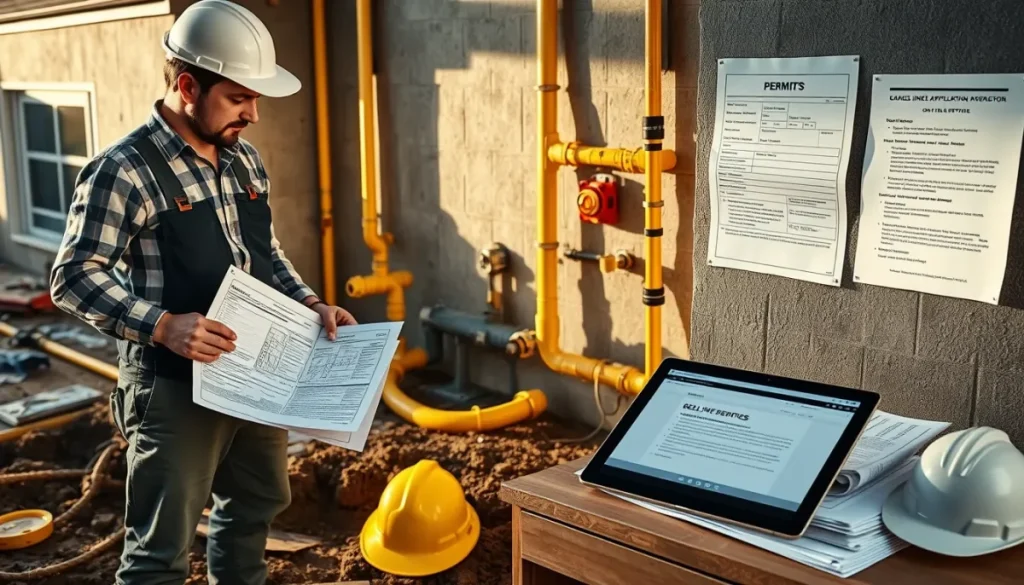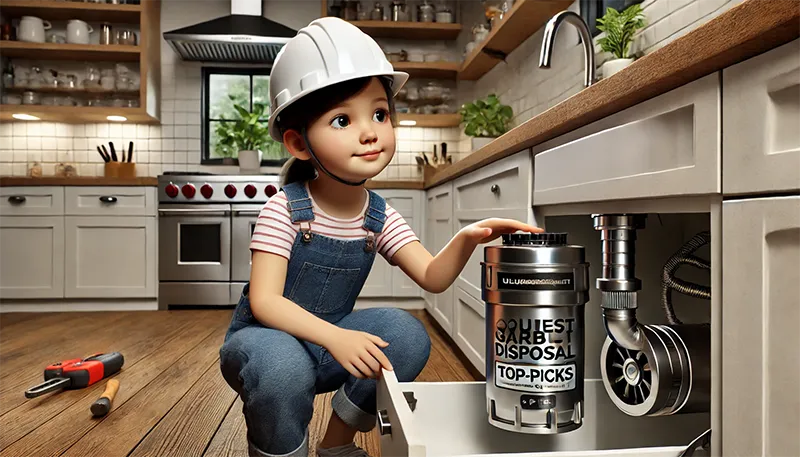What Are Gas Line Installation Permits?
Gas line installation permits are essential documents that allow homeowners and contractors to perform work on gas lines legally. These permits are designed to ensure that any gas line installation or modification meets local safety codes and regulations. Think of it as a green light from your local government that says, “Hey, you can proceed, but make sure you do it safely!”
The permitting process typically involves submitting an application to your local building department, detailing the scope of work you plan to undertake. This application often requires specific information about the materials you’ll use, the layout of the gas lines, and any appliances that will be connected. It’s crucial to comply with these regulations because they are in place to protect you, your family, and your property from potential hazards.
In many areas, failing to obtain the necessary permits can lead to significant consequences, including fines, legal issues, and even the requirement to remove or redo the work at your own expense. So, before you dive into any gas line project, make sure you understand the importance of securing the proper permits!
When Are Gas Line Installation Permits Required?
Understanding when permits are required for gas line installation is crucial for any homeowner or contractor. In most jurisdictions, permits are necessary for any significant work involving gas lines, but the specifics can vary widely based on local regulations. Here’s what you need to know:
Types of Gas Line Work That Typically Require Permits:
- New Installations: If you’re installing a new gas line, whether for a stove, dryer, or outdoor grill, you will almost always need a permit. This ensures that the installation meets safety standards and local codes.
- Alterations to Existing Lines: Any modifications to existing gas lines, such as extending or rerouting them, usually require a permit. This includes adding new appliances or changing the configuration of your gas system.
- Repairs: While minor repairs might not need a permit, significant repairs that involve replacing sections of the gas line or fixing leaks typically do. Always check local regulations to be sure!
Exceptions for Minor Repairs or Alterations:
- Some jurisdictions allow homeowners to perform minor repairs without a permit, such as capping a gas line or replacing a gas appliance connector. However, it’s essential to verify this with your local building department since rules can differ significantly.
Variations in Requirements by State and Municipality:
- Gas line permit requirements can vary not just by state but also by city or county. For example, in some areas, you might need a permit for any work involving gas, while others may have more lenient rules for minor tasks. Always check with your local building authority to understand the specific requirements in your area.
In summary, when in doubt, it’s always best to err on the side of caution and obtain a permit for any work involving gas lines. It’s a small step that can save you from potential legal and safety issues down the road!
How to Obtain a Gas Line Installation Permit
Obtaining a gas line installation permit can seem daunting, but it’s a straightforward process if you follow the right steps. Here’s how you can navigate this essential requirement:
Steps to Apply for a Permit:
- Contact Your Local Building Department: Start by reaching out to your local building department or authority. They can provide you with the necessary forms and specific requirements for your area.
- Complete the Application: Fill out the permit application, providing detailed information about the scope of your project. This may include the type of gas line work you’re planning, the materials you’ll use, and any appliances that will be connected.
- Submit Required Documentation: Along with your application, you may need to submit additional documentation, such as diagrams of the proposed gas line layout or proof of qualifications if you’re a contractor.
Necessary Documentation and Fees:
- Fees: Be prepared to pay a fee when you submit your application. The cost can vary depending on your location and the complexity of the project.
- Documentation: Some areas may require proof of insurance or licensing if you’re hiring a contractor. Make sure to check the specific requirements for your jurisdiction.
Timeline for Approval and Inspections:
- After submitting your application, the approval process can take anywhere from a few days to several weeks, depending on your local office’s workload and the specifics of your project.
- Once approved, you may need to schedule an inspection before you can begin work. This inspection ensures that your planned installation complies with safety codes and regulations.
By following these steps, you can ensure that you obtain the necessary permits for your gas line installation, keeping your project safe and compliant with local laws.
Consequences of Not Obtaining a Gas Line Installation Permit
Failing to obtain a permit for gas line installation can lead to a host of serious consequences, both legal and safety-related. Here’s what you need to know about the risks involved:
Legal Implications of Unpermitted Work:
- Fines and Penalties: If local authorities discover that you’ve performed gas line work without the necessary permits, you could face hefty fines. These penalties can vary significantly depending on your location and the severity of the violation.
- Legal Liability: In the event of an accident, such as a gas leak or explosion, you could be held legally responsible if you didn’t obtain the required permits. This could lead to lawsuits and significant financial repercussions.
Potential Safety Hazards and Risks:
- Increased Risk of Accidents: Without proper oversight from local authorities, there’s a higher chance that your gas line installation may not meet safety standards. This can increase the risk of gas leaks, which can lead to explosions or fires.
- Health Hazards: Gas leaks can pose serious health risks, including carbon monoxide poisoning. If your installation isn’t up to code, you and your family could be in danger.
Impact on Insurance Coverage and Property Value:
- Insurance Issues: If you have an accident related to unpermitted work, your homeowner’s insurance may not cover the damages. Insurers often require proof of permits for any significant work done on your property.
- Decreased Property Value: If you ever decide to sell your home, unpermitted work can be a red flag for potential buyers. It may lead to lower offers or even deter buyers altogether, as they may be concerned about the legality and safety of the gas lines.
In summary, the consequences of not obtaining a permit for gas line installation can be severe. It’s always best to follow local regulations and secure the necessary permits to protect yourself, your family, and your investment in your home.
Working with Professionals and Permits
When it comes to gas line installation, working with qualified professionals is crucial, especially regarding permits. Here’s why:
The Role of Licensed Plumbers in the Permitting Process:
- Licensed plumbers are familiar with local codes and regulations regarding gas line installation. They can help you navigate the permitting process, ensuring that all necessary paperwork is completed correctly.
- A professional can also provide valuable insights into the best practices for installation, helping you avoid common pitfalls that could lead to safety hazards or legal issues.
How to Choose a Qualified Professional:
- Check Credentials: Always verify that the plumber or contractor you hire is licensed and insured. This protects you from liability in case of accidents during the installation.
- Read Reviews: Look for reviews or testimonials from previous clients to gauge the quality of work and professionalism of the contractor. Word of mouth can be a powerful tool in finding a reliable professional.
Importance of Verifying Permits Before Work Begins:
- Before any work starts, ensure that all necessary permits have been obtained. This not only protects you legally but also ensures that the work is done safely and according to code.
- If your contractor claims they will handle the permits, ask to see documentation to confirm that everything is in order. It’s your right as a homeowner to request this information!
By working with licensed professionals and ensuring that all permits are secured, you can have peace of mind knowing that your gas line installation will be safe, legal, and compliant with local regulations.
FAQs
-
What types of gas line work require a permit?
New installations, alterations to existing lines, and significant repairs typically require a permit. Minor repairs may not.
-
Can I install a gas line without a permit?
Generally, no. Most jurisdictions require permits for any significant gas line work to ensure safety and compliance.
-
How long does it take to get a gas line installation permit?
The timeline can vary, but it typically takes a few days to several weeks, depending on local office workloads.
-
What happens if I don’t get a permit for my gas line installation?
You could face fines, legal liability, increased safety risks, and potential issues with insurance coverage.
-
Are there any fees associated with obtaining a gas line permit?
Yes, there are usually fees involved, which can vary based on your location and the nature of the work.
Conclusion
Obtaining a gas line installation permit is a crucial step in ensuring the safety and legality of your gas line work. By understanding the requirements and processes involved, you can protect yourself and your property from potential hazards and legal issues. Always consult with local authorities or licensed professionals if you have questions about permits for your specific project.
Have you navigated the gas line permit process? Share your experiences or tips in the comments below!



